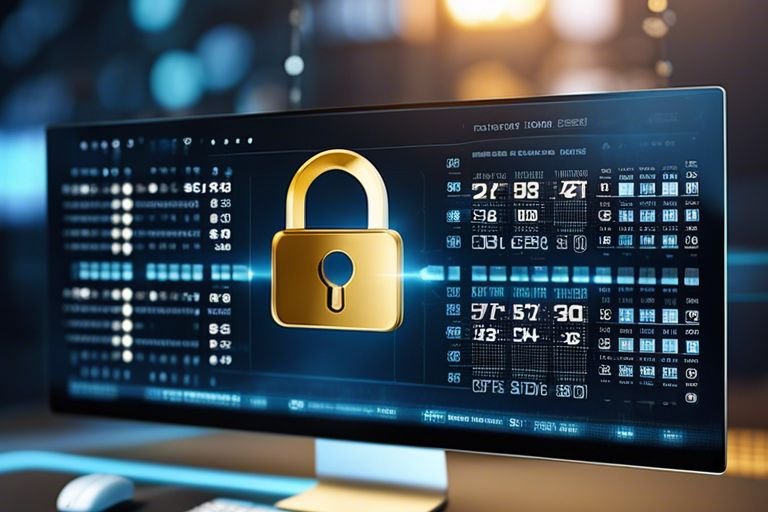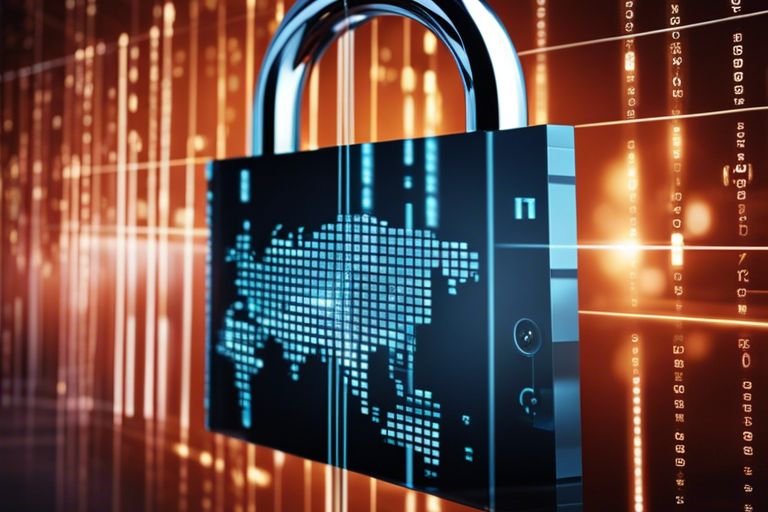What Is the Importance of Data Privacy in ERP Systems?

In today’s digital landscape, the intricacies of enterprise resource planning (ERP) systems have become pivotal in the efficiency and success of businesses. As organizations continue to adopt and integrate these complex systems, the protection of sensitive data has become a top priority. The importance of data privacy in ERP systems cannot be overstated, as it directly impacts the security, trust, and compliance of products, personas, and subjects. This blog post will delve into the significance of data privacy in ERP systems, exploring its implications for businesses and the measures that can be taken to safeguard against potential threats to data security.
Key Takeaways:
- Data protection: Data privacy in ERP systems is crucial for protecting sensitive business and customer data from unauthorized access, breaches, and misuse.
- Compliance: Ensuring data privacy in ERP systems is essential for complying with privacy laws and regulations, such as the GDPR, CCPA, and HIPAA, to avoid legal and financial repercussions.
- Trust and reputation: Maintaining data privacy in ERP systems helps build trust with customers, partners, and stakeholders, safeguarding the organization’s reputation and brand image.

The Role of Data Privacy in ERP Systems
Assuming the role of data privacy in ERP systems is crucial for maintaining the security and integrity of an organization’s sensitive information. ERP systems contain a vast array of data, including financial records, customer information, and employee data, making it essential to uphold strong data privacy measures to prevent unauthorized access and misuse.
Protecting Sensitive Information
Information security in ERP systems is paramount for protecting sensitive data from potential breaches and cyber threats. Implementing robust access controls, encryption, and regular security audits are essential for safeguarding sensitive information from unauthorized access, ensuring that only authorized personnel can view and manipulate critical data within the ERP system.
Additionally, ensuring that the ERP system has built-in features for data masking and anonymization is crucial for protecting sensitive information. By implementing these measures, organizations can mitigate the risk of exposing sensitive data to unauthorized parties, thereby maintaining data privacy and compliance with privacy regulations.
Compliance with Legal Standards
Legal compliance in ERP systems is a non-negotiable aspect of data privacy. Ensuring that the ERP system complies with relevant data protection laws and regulations, such as GDPR, HIPAA, or CCPA, is essential for avoiding potential legal repercussions and maintaining the trust of customers and stakeholders.
This involves implementing data retention policies, obtaining consent for data processing, and providing individuals with the ability to access, rectify, and delete their personal data as required by law. By adhering to legal standards, organizations can demonstrate their commitment to safeguarding data privacy and upholding ethical business practices.
Risks and Threats to Data Privacy in ERP
The proper management of data privacy in ERP systems is crucial to safeguarding the integrity and confidentiality of sensitive information. Any lapse in security can lead to a variety of risks and threats that can compromise the privacy of your organization’s valuable data.
External Breaches and Cyber Attacks
To protect your ERP system from external breaches and cyber attacks, it is essential to implement strong security measures and regularly update your system’s defenses. Attacks aimed at exploiting vulnerabilities in your ERP system can result in unauthorized access to sensitive data, leading to data breaches and potential financial and reputational damage.
It is imperative for organizations to stay vigilant against potential attacks and continuously monitor their ERP systems for any suspicious activities. Regular security assessments and penetration testing can help identify and address any weaknesses in the system to mitigate the risk of external breaches and cyber attacks.
Internal Mismanagement and Human Error
Any internal mismanagement and human error pose a significant risk to the data privacy of your ERP system. Accidental data leaks, unauthorized access, and improper handling of sensitive information can lead to serious consequences for your organization. It is important to educate and train personnel on the proper protocols and best practices for data privacy to minimize the risk of internal mishaps.
Attacks such as phishing scams and social engineering can exploit human errors and mismanagement, making it essential for organizations to implement stringent access controls and monitoring mechanisms to protect against such threats.
Best Practices for Ensuring Data Privacy in ERP
Your organization’s Enterprise Resource Planning (ERP) system holds a vast amount of sensitive data, making it crucial to implement best practices for ensuring data privacy. The following best practices will help you to maintain a high level of data security within your ERP system.
User Access Controls
Best practice for ensuring data privacy in ERP systems involves implementing robust user access controls. This means restricting access to sensitive data only to those authorized to view or modify it. By carefully managing user access, organizations can reduce the risk of data breaches and unauthorized access to sensitive information, thereby enhancing data privacy within the ERP system.
Regular Audits and Monitoring
Regular audits and monitoring are essential components of maintaining data privacy in ERP systems. By conducting regular audits, organizations can ensure that access controls are being adhered to and that any unauthorized attempts to access sensitive data are swiftly identified and addressed. Additionally, continuous monitoring of user activities within the ERP system can provide insights into potential security threats and help to proactively mitigate risks to data privacy.
The regular audits and monitoring of user activities within the ERP system are crucial for detecting and addressing any potential security vulnerabilities, ultimately ensuring that data privacy is upheld to the highest standard. By regularly reviewing access logs and conducting thorough audits, organizations can demonstrate their commitment to maintaining data privacy and compliance with regulatory requirements.
The Future of Data Privacy in ERP Systems
Despite the current focus on data privacy in ERP systems, the future holds a myriad of challenges and opportunities. As technology continues to evolve and privacy regulations become more complex, businesses must stay ahead of the curve to protect their data and maintain compliance.
Emerging Technologies and Trends
Technologies such as artificial intelligence, machine learning, and blockchain are revolutionizing ERP systems, offering powerful tools for data management and analysis. However, these innovations also bring new privacy concerns, as they create more opportunities for data breaches and unauthorized access. As businesses leverage these technologies to drive growth and efficiency, they must also prioritize data privacy and security to mitigate the risks associated with them.
Preparing for Evolving Privacy Regulations
An evolving landscape of privacy regulations, such as the GDPR and CCPA, is reshaping the way businesses handle personal data. Companies must adapt by implementing robust privacy policies, enhancing data security measures, and providing ongoing training for employees. By preparing for these evolving regulations, businesses can safeguard their data and build trust with their customers, while also avoiding hefty fines and legal consequences.
Preparing for evolving privacy regulations requires businesses to prioritize data privacy, implement robust security measures, and stay informed about changing laws and best practices. Incorporating privacy by design principles into ERP systems and processes is essential for ensuring compliance and protecting sensitive data from unauthorized access or misuse. With the right strategies in place, businesses can navigate the complexities of data privacy in ERP systems and maintain the trust of their customers.
Conclusion
Upon reflecting on the importance of data privacy in ERP systems, it is evident that safeguarding sensitive information is paramount for both businesses and individuals. ERP systems serve as a hub for critical data, and without proper privacy measures in place, the risk of unauthorized access and misuse of this data is significantly heightened. By prioritizing data privacy in ERP systems, organizations can uphold trust with their clients, maintain compliance with regulations, and mitigate the potential for costly security breaches. It is imperative for businesses to invest in robust data privacy protocols and continuously monitor and update their ERP systems to ensure the protection of sensitive information.



